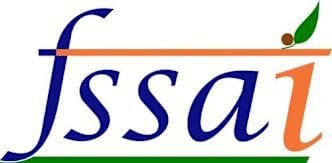Gov Acharya sees emerging spice hubs in North East
The value of global spice industry is projected to reach US$41.9 billion by 2033, up from US$28.5 billion in 2024 but it is important the spices are harmonised, Food Safety and Standards Authority of India (FSSAI) CEO Rajit Punhani said.
He also wants to see science-based food standards to ensure consumer safety and promote equitable trade.
He highlighted the economic and cultural significance of the spice sector at the 8th Session of the Codex Committee on Spices and Culinary Herbs began in (CCSCH) Guwahati on 13 Oct https://www.commerce.gov.in/ .
Organised by the Spices Board under the Ministry of Commerce and Industry, the event brought together 81 delegates from 27 countries to discuss harmonised international standards for spices and culinary herbs https://fieo.org/ .
Inaugurating the session, Governor of Assam Lakshman Prasad Acharya, welcomed the international delegates and pointed out that the 8th session of CCSCH would open new avenues to elevate quality standards through collaborative deliberations and strengthen the foundation of a food system that is safe, sustainable, and beneficial for all.
The Governor also underscored Assam and the North-East’s growing potential as emerging spice hubs, emphasizing that enhanced processing facilities, value addition, and export promotion initiatives are improving farmers’ income and driving socio-economic development in the region https://www.nseindia.com/.
Gov. Acharya commended the joint efforts of the Government of India and the Spices Board in strengthening India’s spice value chain, aligning domestic standards with global benchmarks, and ensuring food safety and quality for consumers worldwide.
Addressing the gathering, Secretary, Spices Board, P. Hemalatha, noted that spices have long shaped global trade, culture, and culinary traditions, but highlighted the growing need for harmonised and science-based global standards amid rapid advances in food science and technology https://www.bseindia.com/.
She also emphasised that unified standards are vital for ensuring safety, fairness in trade, and consumer trust.
Hemalatha noted that spices such as black pepper, cardamom, turmeric, cinnamon, and cloves represent not just flavour but the cultural essence and heritage of civilizations. She further noted that Codex standards play a crucial role in ensuring transparency, efficiency, and sustainability across the global spice industry https://sbi.com.in/.
Established in 2013 at India’s initiative, the Codex Committee on Spices and Culinary Herbs functions under the Codex Alimentarius Commission of the FAO and WHO, with India, through the Spices Board, serving as its Secretariat. So far, Codex has finalised standards for 16 spices, including pepper, turmeric, cumin, nutmeg, cardamom, and saffron.
The week-long session focused on developing new standards for large cardamom, sweet marjoram, cinnamon, and dried coriander seeds. Fiinews.com










